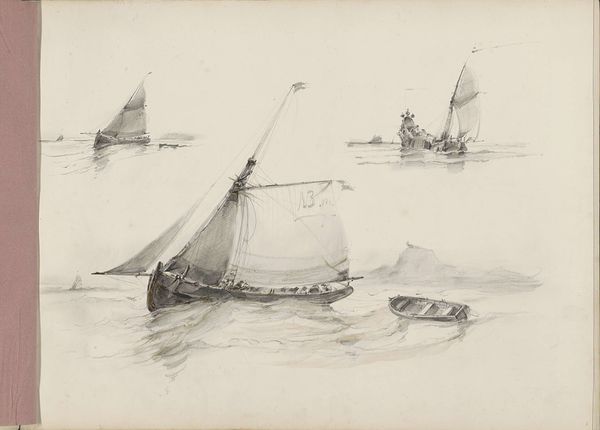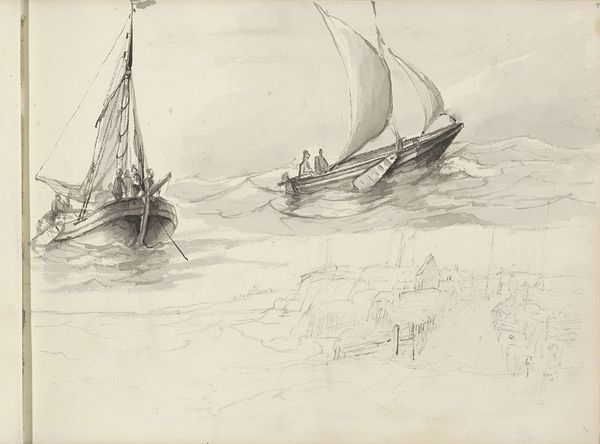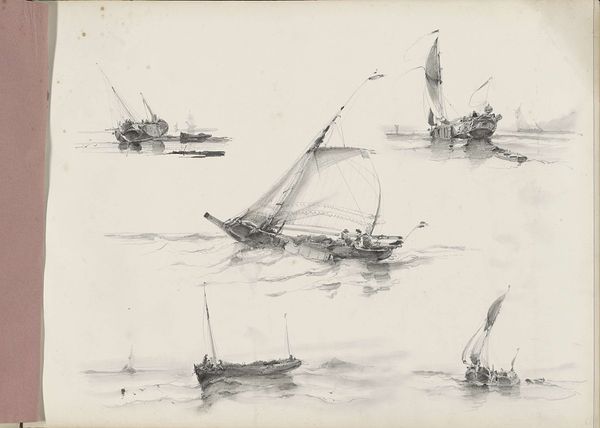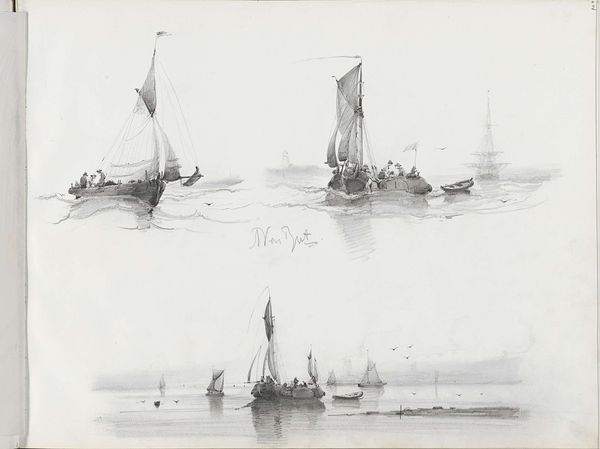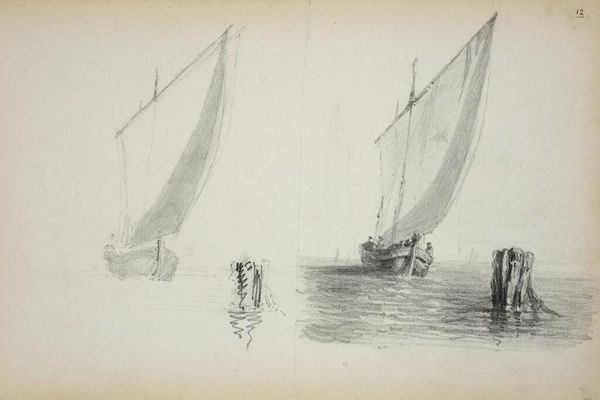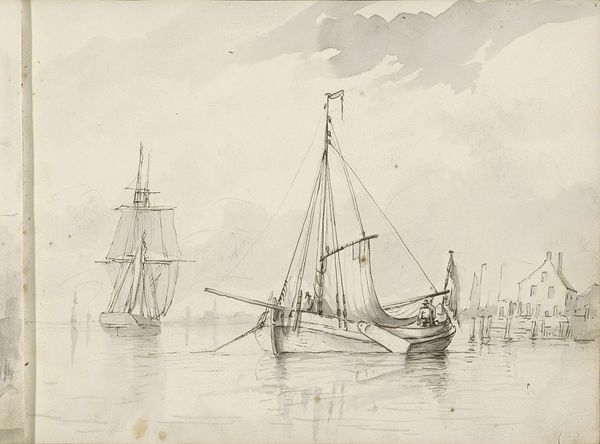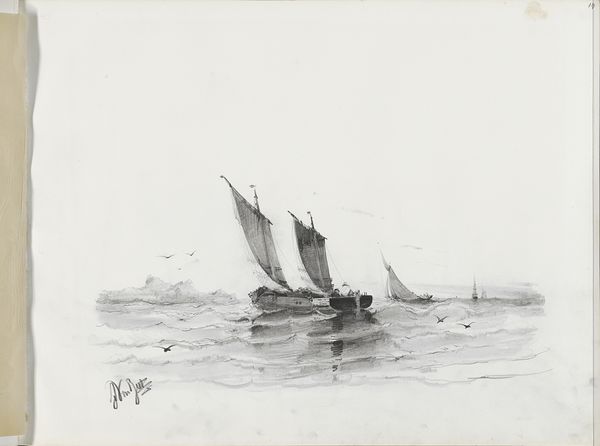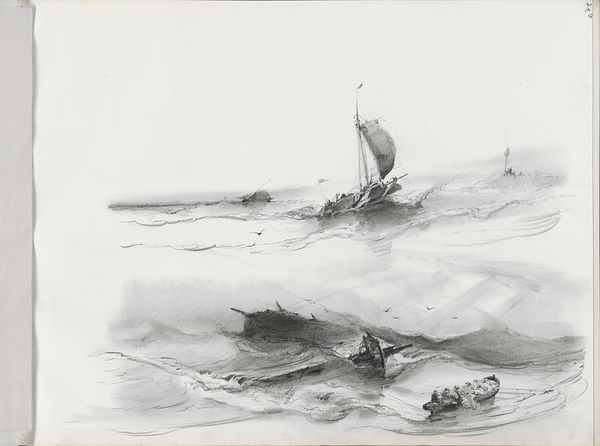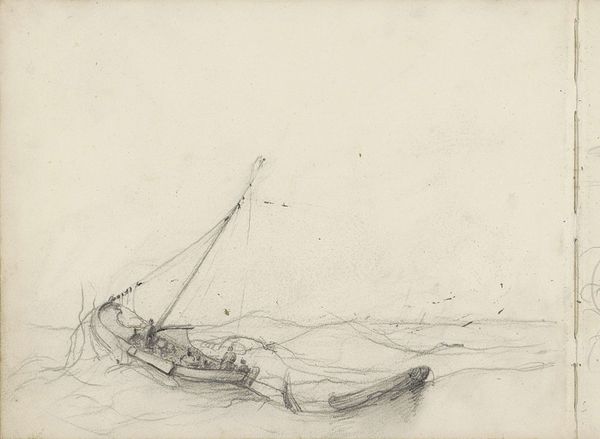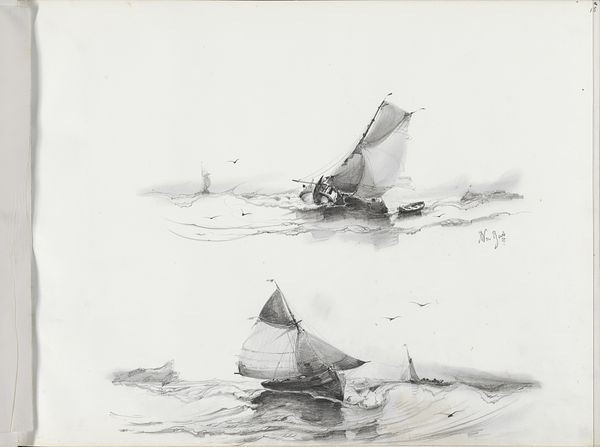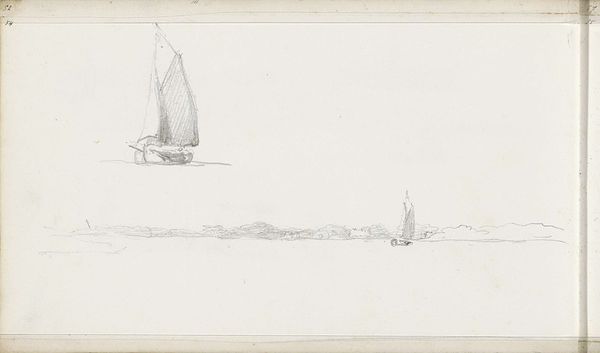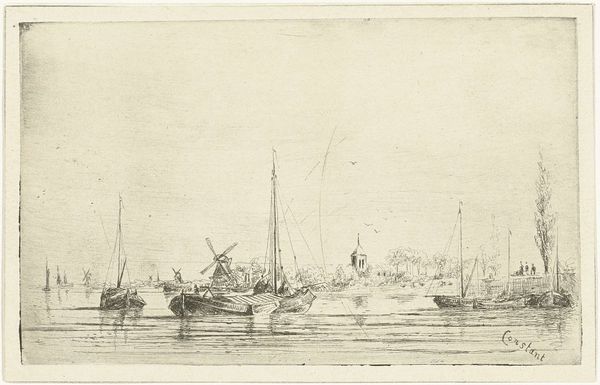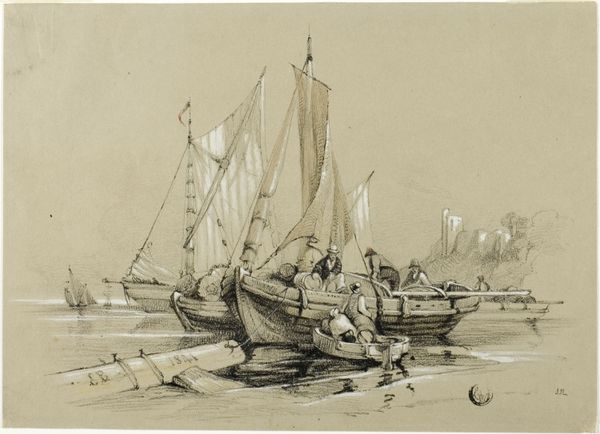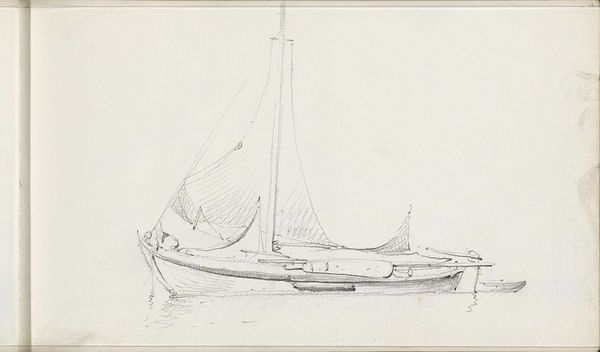
drawing, plein-air, pencil
#
drawing
#
plein-air
#
pencil sketch
#
landscape
#
romanticism
#
pencil
#
sketchbook drawing
Copyright: Rijks Museum: Open Domain
Editor: We’re looking at "Zeilschip voor anker voor een kust" by Albertus van Beest, a pencil drawing created sometime between 1830 and 1860. The hazy scene featuring several ships creates such a tranquil atmosphere. What strikes you when you look at this piece? Curator: The delicate interplay of light and shadow, achieved through subtle gradations in pencil, immediately captivates. Consider the composition: the primary ship dominates the foreground, balanced by smaller vessels in the distance. Notice how the artist utilizes line – short, almost tentative strokes – to define form and volume, as we can appreciate his method of plein-air work in capturing the atmosphere in this time frame. Editor: The details in the rigging of the larger ship are quite impressive. Do you think that contributes to the romantic style? Curator: Precisely! It is in the specific use of detailed elements alongside looser strokes that this piece embraces its identity as romantic art. We may use semiotics here: how are lines being used in order to allow the viewer to see past, behind, and into the world of this artwork? I implore viewers to think about structure as they traverse our hallowed halls today. Editor: It’s fascinating how much emotion a simple pencil drawing can convey. I really like how this piece emphasizes form over content. Thanks for breaking this down. Curator: My pleasure. Remember, the beauty of art lies in its ability to communicate through form, line, and texture, transcending the need for elaborate narratives. This drawing offers a perfect case study of formalist principles in action, where line and material can have a voice without speaking literal language.
Comments
No comments
Be the first to comment and join the conversation on the ultimate creative platform.
